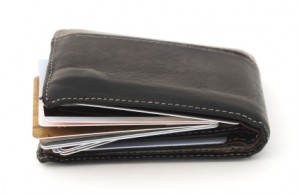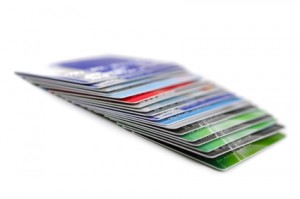 Credit cards are an important financial tool that can be a smart part of your finances. The credit extended to you by credit card companies can help to create a history that shows lenders you are responsible with your money and trustworthy when it comes to repayment. Having multiple credit cards is beneficial when it extends your available credit, improves your credit score, includes perks or rewards and you use them in a responsible manner.
Credit cards are an important financial tool that can be a smart part of your finances. The credit extended to you by credit card companies can help to create a history that shows lenders you are responsible with your money and trustworthy when it comes to repayment. Having multiple credit cards is beneficial when it extends your available credit, improves your credit score, includes perks or rewards and you use them in a responsible manner.
Use the FREE credit card chaser to check out multiple credit cards that will work for you!
However, having too much credit can also be a risky financial move in certain instances. All credit cards have a proverbial dark side, and having multiple credit cards when you are not using them responsibly will only compound your problems.
When Multiple Credit Cards Extend Your Available Credit
Credit cards have a spending limit; this is the amount of credit that the credit card companies have extended to you. Each new credit card’s limit increases the amount of credit you have overall.
One credit card with a $5,000 limit gives you $5,000 in credit, and five credit cards with a $1,000 limit each also give you $5,000 in credit.
The more credit you have, the more attractive you appear financially to other lenders. If the credit card companies feel that you are a low risk for nonpayment, they will give you more credit. Other lenders can view this as a vote of confidence from your creditors, helping you to get more credit in other forms such as an auto loan and a mortgage.
When Multiple Credit Cards Improve Your Credit Score
While your total available credit is the same with one card at a $5,000 limit or five cards with a $1,000 limit, multiple credit card accounts will have a more positive effect on your credit score. MyFICO.com explains that credit-reporting bureaus use a whole slew of factors to determine your credit score beyond just your credit limit. Other factors used to calculate a credit score that are affected by multiple credit cards include:
- Your payment history on the accounts. This counts for 35% of your credit score. Good payment history on two or three accounts could count for more than good history on just one account.
- Length of your credit history. The more accounts you have open and in positive standing for a long time, the better your score. This accounts for 15% of your credit score.
- New credit accounts that affect 10% of your credit score. New accounts show that creditors trust you to repay them; however, too many new accounts could look like you are taking on more credit than you can handle.
- The different types of credit used. While all credit cards are revolving credit, the addition of revolving credit to your credit history will affect 10% of your score.
Perks or Rewards that Multiple Credit Cards Earn
Many credit card companies attempt to sweeten the deal by allowing consumers to earn rewards, points or other bonuses every time a credit card is made to purchase goods or services. Having multiple credit cards could help to maximize these rewards when specific cards offer better rewards for certain purchases. For instance, you may have a credit card that you use to buy gas and another to purchase airline tickets. Common credit card rewards include:
- Airline miles towards free flights.
- Cash back that is a percentage of your total charges.
- Points that can be used towards hotel stays, rental cars, merchandise or gift certificates.
How to Use Multiple Credit Cards Responsibly
 All of the above information is only useful if you use your multiple credit cards wisely. First, they should really only be used in emergencies or if the savings from rewards will be substantial. Next, they must be repaid in a timely manner; making minimum monthly credit card payments will not allow you to keep ahead of interest charges.
All of the above information is only useful if you use your multiple credit cards wisely. First, they should really only be used in emergencies or if the savings from rewards will be substantial. Next, they must be repaid in a timely manner; making minimum monthly credit card payments will not allow you to keep ahead of interest charges.
Lastly, you need to keep your debt-to-credit ratio low. This ratio is how much you owe on each credit card versus the limit on that card. For instance, a credit card that has a $1,000 limit and a $500 balance has a 50% debt-to-credit ratio; you have used half of your credit. SmartMoney.com maintains that a debt-to-credit ratio over 75% will hurt your credit score; it appears as if you are overextending your finances when you use so much of your credit. Also, keep in mind that the debt-to-credit ratios of all of your credit card accounts are factored in.
A credit card with a $500 limit and a balance of $450 will negatively affect your credit score even though it is a relatively small amount of debt.
When Multiple Credit Cards a Bad Idea
Multiple credit cards can be a bad idea in certain instances. If you can’t keep multiple payment due dates straight, or if you will accrue a large amount of debt, then having multiple credit cards will probably hurt you in the long run.
If you are going to get multiple credit cards, make sure to research them with the FREE credit card finder to locate the best cards!








